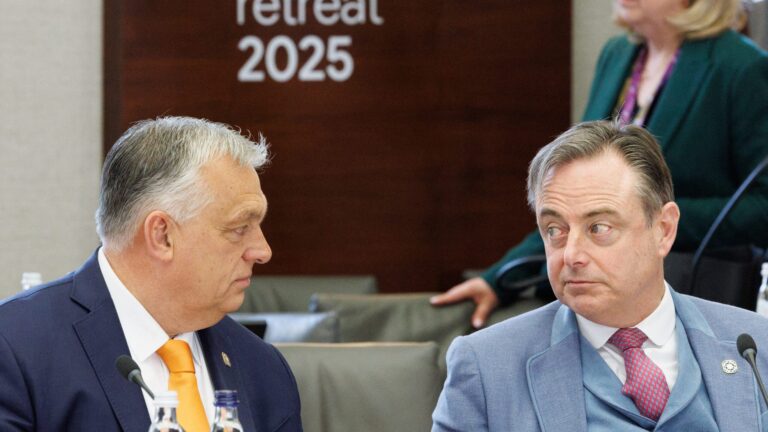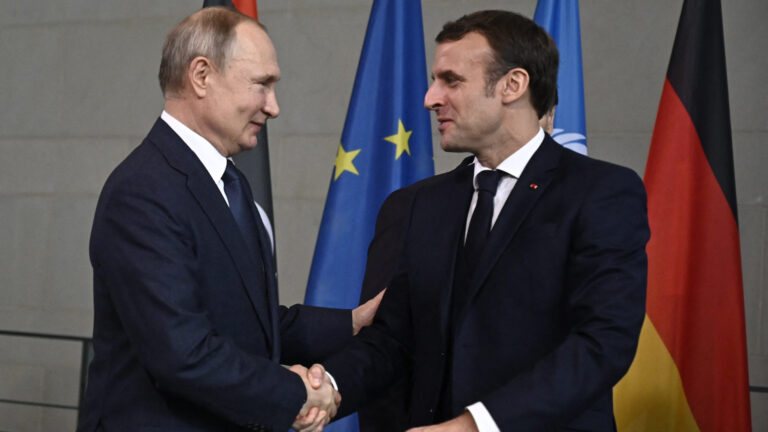In politics, every word carries weight; this has become even more evident since the outbreak of the war in Ukraine two and a half years ago. This is especially true for the leading politicians of a country that takes a position diverging from the mainstream, advocating for peace instead of escalating the conflict. Since Russia’s attack on Ukraine, Hungary has been nearly the only pro-peace country within the European Union—and, more broadly, within the Western alliance system—to consistently maintain a pro-peace stance. As a result, there have been countless instances where pro-war media outlets and politicians have criticized Hungarian government officials by distorting statements or taking their comments out of context.
What happened on Wednesday was no different. Balázs Orbán, the political director of the Hungarian prime minister, appeared on a podcast on Wednesday, where he drew parallels between Ukraine’s patriotic war and the Hungarian Revolution of 1956. During the discussion he remarked that based on the experiences of 1956, the Hungarian government ‘probably would not have done what Zelenskyy did two and a half years ago, because it appears that he placed his country on the defensive, resulting in numerous casualties and significant territorial losses.’ He added that it was ultimately Ukraine’s sovereign decision to act that way, but noted that Hungary would not have recommended such an approach. ‘We learned then that we must be cautious and protect the invaluable lives of Hungarians. You cannot simply sacrifice them for the sake of others,’ he said.
The 1956 revolution was one of the most significant events in Hungary’s 20th-century history, and perhaps world history, too. On 23 October 1956 demonstrations against the Stalinist terror began in Budapest and quickly spread to other cities across the country. The situation escalated into violence after the Communist leadership ordered troops to fire on the unarmed crowds. The freedom fighters initially succeeded in getting the government on their side and forcing the withdrawal of Soviet troops stationed in Hungary. However, on 4 November the Soviet troops returned and after bloody fighting crushed the revolution. According to official figures, more than 2,500 Hungarians lost their lives during the revolution, and many were executed during the brutal reprisals that followed.
Pro-War Media in Action
After this historical context, let us return to Balázs Orbán’s statement. The political director’s statement sparked significant controversy in both international and domestic left-wing, pro-war media outlets, as well as among opposition politicians. It is true that his remarks were somewhat ambiguous, leaving room for deliberate misinterpretation by those intent on distorting his words. For instance, POLITICO, which is consistently portraying Hungary in a negative light, reported that Balázs Orbán’s comments implied that Hungary would have capitulated to Russia. ‘If it were in Ukraine’s shoes, Budapest wouldn’t have fought the Russians,’ the article claimed, completely misconstruing his words.
Former Hungarian Socialist Prime Minister Ferenc Gyurcsány—who, in 2006, ordered the use of rubber bullets against anti-government protesters on the 50th anniversary of the revolution—also reacted to the statement, accusing the Hungarian government of treason. Péter Magyar, leader of the largest opposition party, Tisza, condemned Balázs Orbán’s remarks as outrageous, stating that the political director’s words ‘humiliated the memory of thousands of Hungarian freedom fighters, hundreds of whom were willing to sacrifice their lives for the freedom and independence of their country.’
Hungary Won’t Give in to Pressure
In response to the seemingly coordinated attacks, Balázs Orbán addressed the accusations on social media, clarifying his earlier statement. He wrote: ‘Hungary’s position is clear: we see no sense in the Ukrainian–Russian war, which has been ongoing for more than two and a half years, resulting in hundreds of thousands of deaths, the loss of hundreds of thousands of square kilometres of territory, and the devastation of an entire country. Why? For nothing.’ He added that the war should never have started and should have been resolved diplomatically as soon as possible. Orbán further stressed that ‘drawing a contrast between the Hungarian heroes of 1956 and Hungary’s current stance is a typical tactic of foreign-funded propaganda outlets and pro-war politicians, which I find outrageous and reject at every opportunity—as I made clear during the recent discussion.’
In a subsequent post, the political director reiterated that the heroes of 1956 are national heroes, whose memory is sacred and inviolable, and affirmed that they were right and acted justly. Balázs Orbán emphasized that Hungary’s position has always been unwavering, remains steadfast, and will continue to hold firm in the future, despite the pressure exerted by pro-war propaganda.
‘We would not be the political community we are today without the heroes of 1956’
Hungarian Prime Minister Viktor Orbán also addressed the issue, stating that on such sensitive matters, the government’s stance must always be clear and unequivocal, leaving no room for doubt. In this respect, he noted, Balázs Orbán made a mistake by using ambiguous language. ‘We would not be the political community we are today without the heroes of 1956. Therefore, in the debate on war and peace, we should not invoke the events and heroes of Hungarian history that are sacred and inviolable to us, such as the heroes of 1956, but rather keep them out of the discussion,’ he underlined. The prime minister added that he has no doubt ‘Balázs Orbán would be with us at the Corvin Passage (one of the most famous sites of the 1956 fighting in Budapest – ed.) if history were to turn in such a way that we had to fight for our country again.’ He concluded by stressing the importance of ensuring that international debates on war and peace, when they reach Hungary, do not distract from or undermine otherwise critical domestic discussions.
Related articles:







